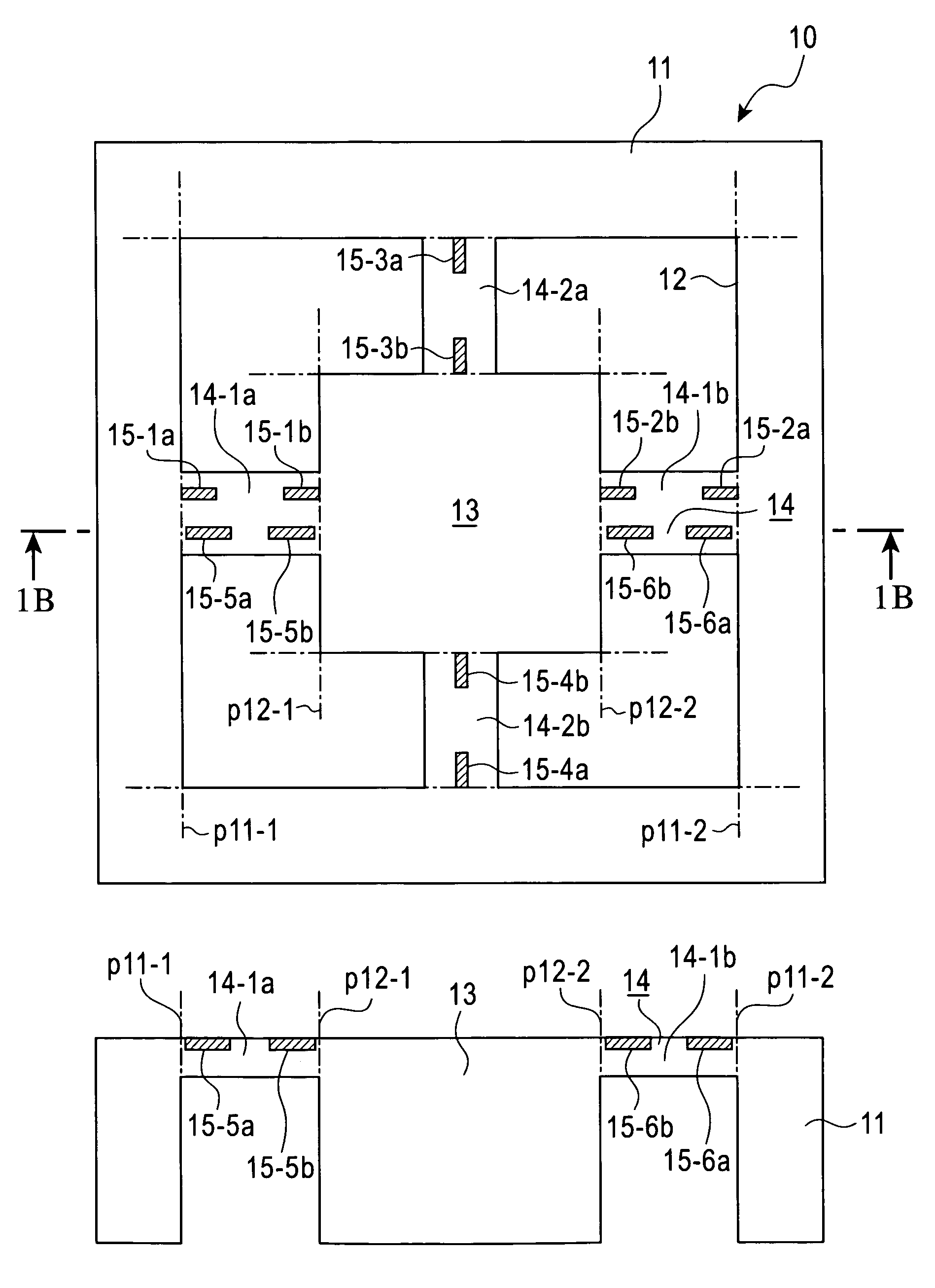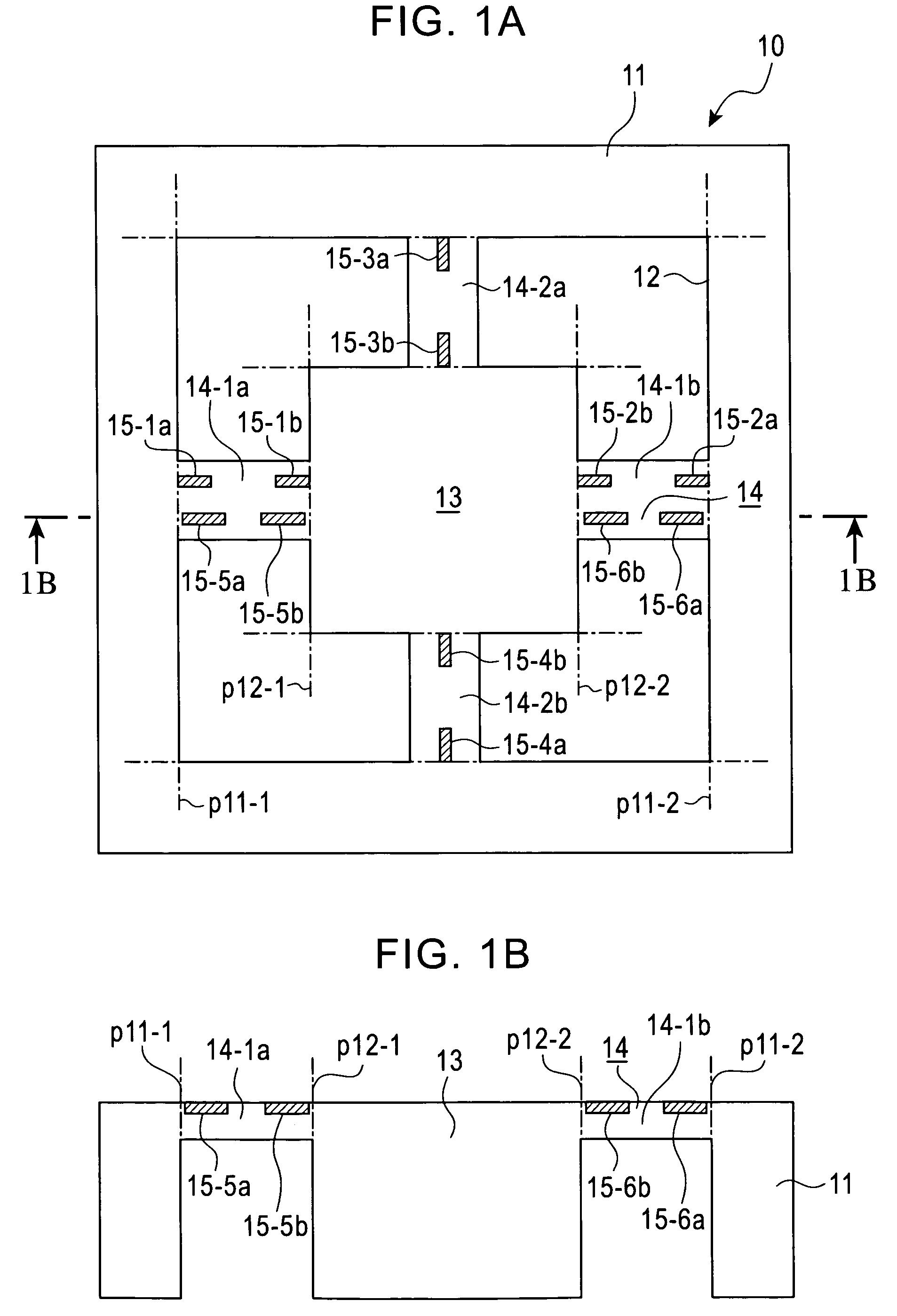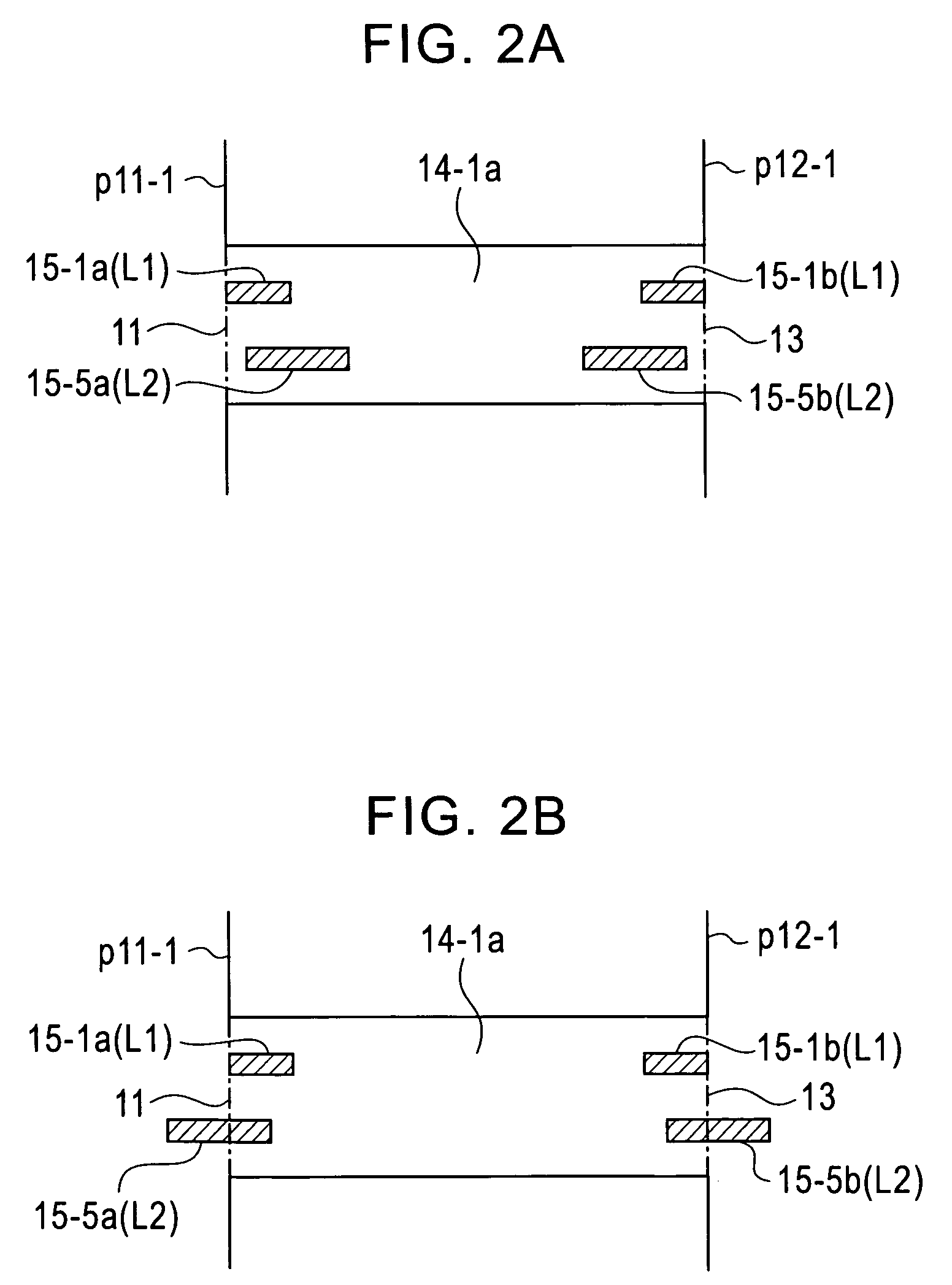Acceleration sensor
a triaxial acceleration and sensor technology, applied in the direction of acceleration measurement in multiple dimensions, acceleration measurement using interia forces, instruments, etc., can solve the problem of not considering the power saving kind, and achieve the effect of natural drop in sensitivity, power saving, and easy reduction of output difference between the x axis and the z axis
- Summary
- Abstract
- Description
- Claims
- Application Information
AI Technical Summary
Benefits of technology
Problems solved by technology
Method used
Image
Examples
embodiment 1
[0030]Referring to FIG. 1A and FIG. 1B, the configuration of the piezo-resistance type triaxial acceleration sensor 10 according to a first embodiment of the present invention will be described.
[0031]This acceleration sensor 10 is made from a silicon mono-crystal substrate, just like a prior art, and has roughly a square frame section 11. At the four corners inside the frame section 11, roughly L-shaped openings 12 are formed penetrating in the Z axis direction, that is a vertical direction to the FIG. 1A drawing sheet. At the inner center of the four openings 12, a cubic mass section 13, which is a thick weight, is disposed. The mass section 13 is flexibly connected to the frame section 11 by the thin beam section 14. The beam section 14 includes two rectangular beam elements 14-1a and 14-1b extending in the X axis direction, which is the width direction of the FIG. 1A drawing sheet, and two rectangular beam elements 14-2a and 14-2b extending in the Y axis direction, which is the h...
embodiment 2
[0047]FIG. 3A and FIG. 3B are enlarged plan views depicting Embodiment 2 of the present invention. FIG. 3A and FIG. 3B are similar to FIG. 2A and FIG. 2B, and illustrate the formation locations and shapes (particularly the lengths L1 and L2) of the piezo-resistors 15-1a, 15-1b to 15-6a, 15-6b which are formed on the beam elements 14-1a, 14-1b, 14-2a and 14-2b shown in FIG. 1A. In FIG. 3A, only the beam element 14-1a is shown to simplify the illustration.
[0048]The primary feature of the present invention lies in that the length L2 of the Z-axis piezo-resistors 15-5a, 15-5b, 15-6a and 15-6b is longer than the length L1 of the X-axis piezo-resistors 15-1a, 15-1b, 15-2a and 15-2b so as to drop the sensitivity of the Z-axis piezo-resistors. In Embodiment 2, each Z-axis piezo-resistor 15-5a, 15-5b, 15-6a and 15-6b includes the length L1 of the corresponding X-axis piezo-resistor 15-1a, 15-1b, 15-2a and 15-2b entirely and also includes a smaller-distortion area, to drop the sensitivity.
[00...
embodiment 3
[0054]The present invention is not limited to the above described and illustrated embodiments, and can be modified in various ways. One example of such modifications will be described as Embodiment 3.
[0055]The shape of the acceleration sensor 10 is not limited to a square. A rectangle or a circle is acceptable. The shapes and the numbers of the weight section 13, the beam elements 14 which support the weight section 13, and the piezo-resistors 15-1a, 15-1b to 15-6a, 15-6b formed on the beam elements are also not limited to the above-described or illustrated shapes and numbers.
PUM
 Login to View More
Login to View More Abstract
Description
Claims
Application Information
 Login to View More
Login to View More - R&D
- Intellectual Property
- Life Sciences
- Materials
- Tech Scout
- Unparalleled Data Quality
- Higher Quality Content
- 60% Fewer Hallucinations
Browse by: Latest US Patents, China's latest patents, Technical Efficacy Thesaurus, Application Domain, Technology Topic, Popular Technical Reports.
© 2025 PatSnap. All rights reserved.Legal|Privacy policy|Modern Slavery Act Transparency Statement|Sitemap|About US| Contact US: help@patsnap.com



